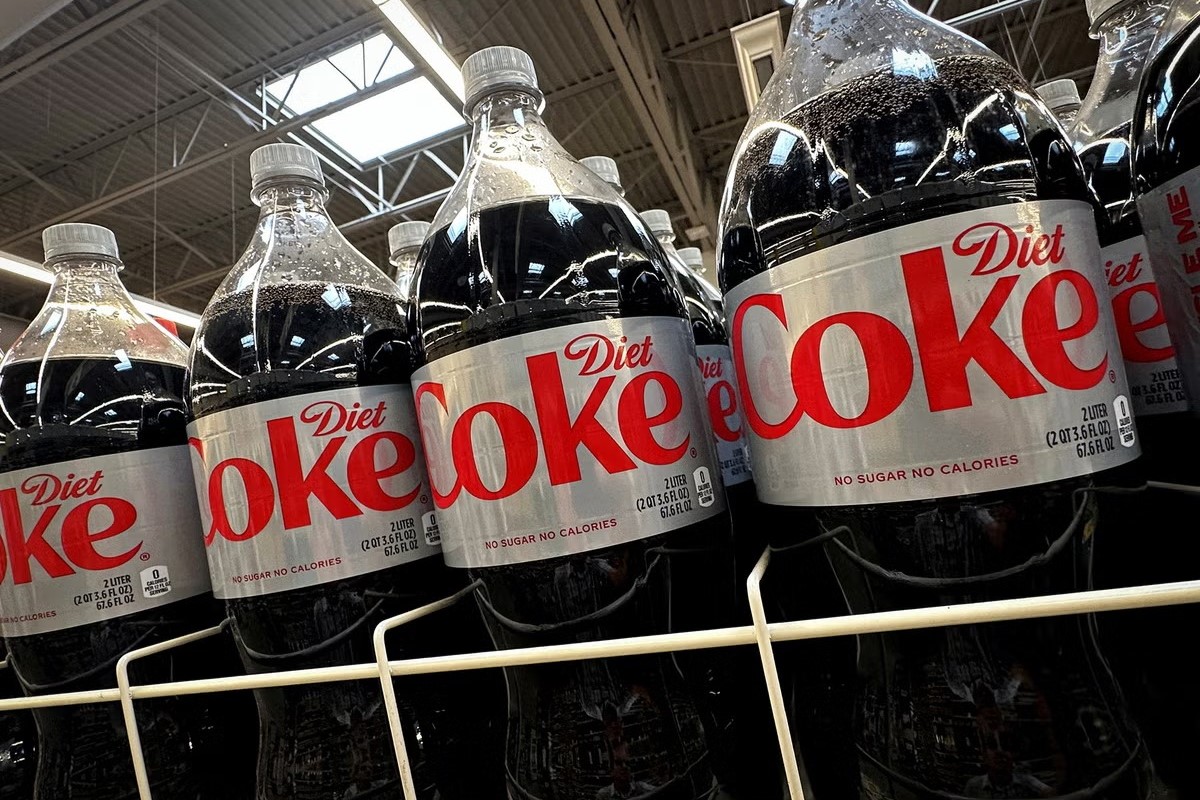
Diet Coke has become synonymous with low-calorie, sugar-free refreshment. It has been a popular choice for individuals looking to reduce their sugar intake without sacrificing the fizzy and satisfying taste of a carbonated beverage. But what exactly are the nutrition facts behind this beloved beverage?
In this article, we will dive into 11 nutrition facts for Diet Coke. We will explore the calorie and sugar content, the presence of any additives or artificial sweeteners, and the impact of consuming Diet Coke on weight loss and overall health. Whether you’re a dedicated fan of Diet Coke or simply curious about the nutritional aspects of this iconic drink, this article will provide you with all the information you need to make informed choices about your beverage consumption.
Key Takeaways:
- Diet Coke is a zero-calorie, sugar-free drink with caffeine for a quick energy boost. It’s great for mixing cocktails and comes in different flavors, but should be enjoyed in moderation.
- While Diet Coke can be a refreshing choice, it doesn’t provide nutrients and may have a diuretic effect due to caffeine. It’s best to enjoy it in moderation and consider overall dietary needs.
Zero Calories and Sugar
Diet Coke is known for being a zero-calorie drink, making it a popular choice for those looking to cut down on sugar and maintain a healthy lifestyle. Unlike regular Coke, which contains approximately 140 calories per can, Diet Coke provides the same refreshing taste without the added sugar.
Artificial Sweeteners
To achieve its sweet taste, Diet Coke uses artificial sweeteners such as aspartame, acesulfame potassium, and sucralose. These sweeteners provide the desired flavor without adding any calories to the beverage.
Caffeine Boost
Diet Coke contains caffeine, which can provide a quick energy boost and increase alertness. A 12-ounce can of Diet Coke contains around 46 milligrams of caffeine, making it a popular choice for those needing an afternoon pick-me-up.
Nutrient-Free
While Diet Coke may offer a refreshing taste, it does not provide any significant nutrients. It is important to remember that Diet Coke should not replace essential nutrients found in a balanced diet.
Low Sodium Content
For individuals watching their sodium intake, Diet Coke can be a suitable choice. It has a low sodium content compared to many other carbonated beverages available in the market.
Suitable for Diabetic Individuals
Due to its zero sugar content, Diet Coke can be a suitable beverage option for individuals with diabetes. However, it is still important to monitor overall carbohydrate intake and consult with a healthcare professional.
Versatile Mixer
Diet Coke is a popular choice as a mixer in various cocktails and mixed drinks. Its zero-calorie and refreshing taste make it an ideal addition to a wide range of alcoholic beverages.
Available in Different Variants
The popularity of Diet Coke has led to the introduction of various flavor variants. From cherry to lime and even vanilla, there are numerous options available to suit different taste preferences.
Can have a Diuretic Effect
Due to its caffeine content, Diet Coke may have a diuretic effect on the body, leading to increased urine production. This effect may be more pronounced in individuals who are not accustomed to caffeine. Staying hydrated with additional water is still essential.
Enhances Carbonation Sensation
The carbonation in Diet Coke provides a fizzy and refreshing sensation, making it a popular choice for individuals who enjoy the feeling of bubbles dancing on their taste buds.
Enjoy in Moderation
While Diet Coke can be a refreshing beverage choice, it is important to enjoy it in moderation. Like any other carbonated drink, excessive consumption may have adverse effects on overall health.
In conclusion,
The 11 Nutrition Facts for Diet Coke highlight its zero-calorie and sugar-free nature, use of artificial sweeteners, caffeine content, and versatility as a beverage option. It is important to consider individual dietary needs, moderate consumption, and overall nutritional intake when incorporating Diet Coke into a balanced lifestyle.
Conclusion
In conclusion, Diet Coke is a popular beverage choice for those looking to cut back on calories and sugar. While it may offer some benefits for weight management and lower sugar intake, it is important to consider its potential drawbacks. The artificial sweeteners used in Diet Coke, such as aspartame, have raised concerns about their potential effects on health. It is also worth noting that excessive consumption of Diet Coke or any artificially sweetened beverage may have negative impacts on overall health and hydration.
As with any food or drink, moderation is key. If you enjoy Diet Coke occasionally as part of a balanced diet, it is unlikely to have a significant negative impact. However, if you have concerns about artificial sweeteners or are trying to limit your intake of processed foods, there are alternative beverage choices available. Ultimately, the choice to include Diet Coke in your diet should be based on your personal preferences and health goals.
FAQs
1. Is Diet Coke healthier than regular Coke?
Diet Coke is lower in calories and sugar compared to regular Coke, making it a better choice for those looking to reduce their calorie and sugar intake. However, it’s important to note that Diet Coke contains artificial sweeteners, which may have their own potential health risks.
2. Can I lose weight by switching to Diet Coke?
Switching to Diet Coke can potentially help with weight management as it contains fewer calories. However, it’s important to remember that weight loss is a complex process that involves a balanced diet and regular exercise. Simply substituting regular Coke with Diet Coke may not guarantee weight loss.
3. Are there any health risks associated with drinking Diet Coke?
Diet Coke contains artificial sweeteners like aspartame, which have been a topic of debate in terms of their potential health effects. Some studies have suggested a link between artificial sweeteners and negative health outcomes, although more research is needed to establish clear causality.
4. Can I drink Diet Coke if I have diabetes?
Diet Coke can be consumed by individuals with diabetes as it doesn’t contain sugar. However, it’s important to consult with a healthcare professional for personalized advice on managing blood sugar levels and overall dietary choices.
5. Are there any alternative options to Diet Coke?
Yes, there are plenty of alternative beverage choices available for those who want to reduce their consumption of artificial sweeteners or carbonated drinks. Some options include flavored sparkling water, herbal tea, or infused water with fruits and herbs.
Was this page helpful?
Our commitment to delivering trustworthy and engaging content is at the heart of what we do. Each fact on our site is contributed by real users like you, bringing a wealth of diverse insights and information. To ensure the highest standards of accuracy and reliability, our dedicated editors meticulously review each submission. This process guarantees that the facts we share are not only fascinating but also credible. Trust in our commitment to quality and authenticity as you explore and learn with us.


